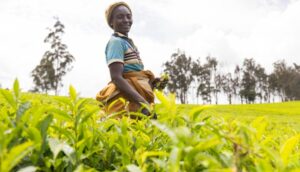The proposed Benchmarking the Business of Agriculture (BBA) is a joint effort of the Doing Business and agricultural development teams of the World Bank and is partly based on the (in)famous Doing Business project. Doing Business is arguably the Bank’s highest profile publication and ranks countries’ business regulations and laws across ten key indicators, but it has been slammed by governments, trade unions and civil society alike as undermining pro-poor private sector development in countries.
A recent review of Doing Business made far-reaching recommendations for reform. The BBA team are in a fortunate position to take the best from Doing Business, as well as to learn from its mistakes. Here are five important lessons from the review:
1. Demonstrate its link to poverty reduction
Doing Business, on the recommendation of the review panel, was moved from the IFC to the Bank’s research department to help better align it with the Bank’s mandate for poverty reduction. Likewise, the BBA should be able to show a direct causal benefit to poor men and women – in this case, by focusing on smallholder farmers. At the very least, there needs to be a robust theory of change, backed up by evidence.
2.Be clear that it is not a blueprint for reform
“One size fits all” approaches have long ago been relegated to the dustbin of failed development interventions. Data and assessment tools have important but limited usefulness in informing but not in guiding policy reforms.
Doing Business was also born out of an idea to collect data in an area where no data existed – the state of business regulation. But as Doing Business evolved it began to be used not just as a data collection tool but to incentivise and even to guide reforms. It was rightly, however, criticised by the review panel as a “poor guide for policy making”.
The BBA team need to beware that they are not falling into the same trap of establishing normative approaches to context-sensitive policy areas.
3. Make sure it is used and communicated properly
Doing Business was criticised by the review panel for burying its limitations in small print.
Like Doing Business, the BBA will never be comprehensive – that would make it unwieldy. There will always be a tension between measuring what matters and measuring what is easy to collect, but by being more conscious of those trade-offs the BBA team can better ensure that their product will be fit-for-purpose.
Doing Business’s use of rankings came in for particular criticism by the review panel, as it suggests that the tool is a blueprint and undermines rather than strengthens local discussions around reform priorities. So far, the BBA team has chosen not to repeat this mistake in producing a ranking – this is to be applauded.
4. The methodology needs to be robust
Doing Business relied on lawyers for its data. This may be cheap, but presents an incomplete and skewed picture. As the panel stated Doing Business made: “far-reaching observations based on data gathered from sources with a relatively narrow perspective on the business environment. The focus on formal and legal requirements gives a partial and potentially misleading picture of the situation faced by firms on the ground.”
Having evidence-based indicators, clearly linked to the project’s objectives, should be a priority of the BBA team. They also need to cross-check and complement this information with other tools and ensure that the results are used to inform national dialogues (not supercede them). The BBA have made a good start here by instigating the ‘deep dive’ studies to accompany the indicators.
5. Be open to change and to input
Finally, as evidence and thinking evolve and as realities on the ground change, any tool will need to adapt. Having a good process to oversee the project, ensure that it remains relevant and open to criticism is part of keeping it useful to policy-makers. Setting up such an oversight and governance mechanism was a key recommendation of the Doing Business review and the BBA team are already doing better, by consulting with civil society and other experts in the early stage of the project. This arrangement needs to continue as the project moves forward. Watch this space!










